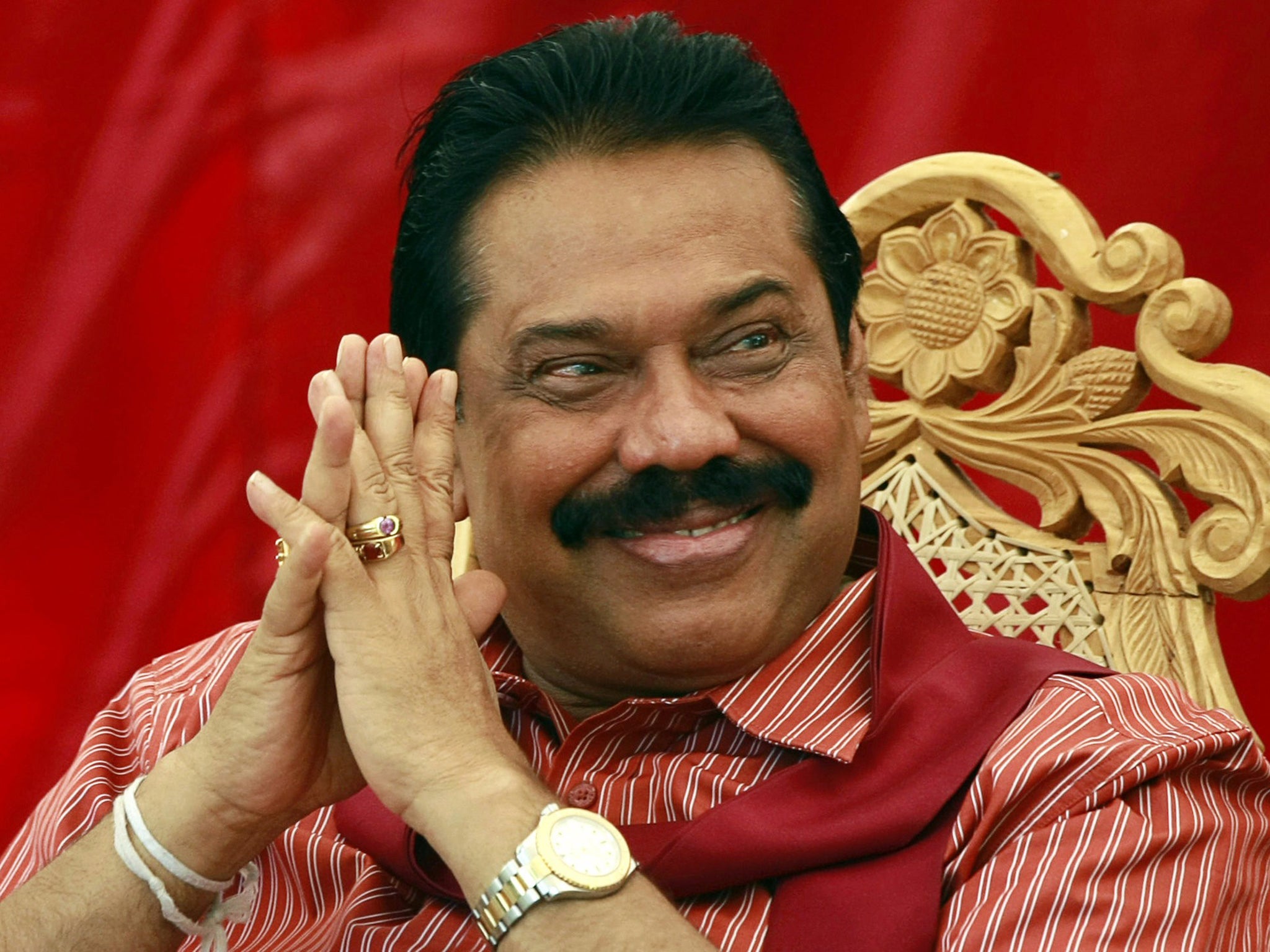Sri Lankan President Mahinda Rajapaksa calls snap election amid row over his wide-ranging powers
A cabinet minister resigned this week to protest against Mr Rajapaksa’s refusal to heed demands for democratic reforms

Your support helps us to tell the story
From reproductive rights to climate change to Big Tech, The Independent is on the ground when the story is developing. Whether it's investigating the financials of Elon Musk's pro-Trump PAC or producing our latest documentary, 'The A Word', which shines a light on the American women fighting for reproductive rights, we know how important it is to parse out the facts from the messaging.
At such a critical moment in US history, we need reporters on the ground. Your donation allows us to keep sending journalists to speak to both sides of the story.
The Independent is trusted by Americans across the entire political spectrum. And unlike many other quality news outlets, we choose not to lock Americans out of our reporting and analysis with paywalls. We believe quality journalism should be available to everyone, paid for by those who can afford it.
Your support makes all the difference.Sri Lanka’s President, Mahinda Rajapaksa, has called an early election to seek a third term in office amid growing criticism of his wide-ranging powers.
The move, two years before his current term expires, is seen as an attempt by Mr Rajapaksa to prevent an expected loss of public support if an election were held on schedule.
He continues to enjoy much of the popularity he gained by ending a 25-year civil war in 2009, but recent provincial elections showed signs of a slide in support amid rising living costs, corruption allegations and a deterioration in law and order. A cabinet minister resigned on Tuesday to protest against the president’s refusal to heed demands for democratic reforms.
Mr Rajapaksa was first elected in 2005 and overwhelmingly won another six-year term in 2010. He used his party’s parliamentary dominance after that victory to change the constitution and scrapped a two-term limit for presidents, but some legal experts argued that he couldn’t contest another election because he won his second term under the old rule.
The Supreme Court – appointed by Mr Rajapaksa under powers he received through the same 2010 constitutional change – ruled earlier this month that he could seek a third term.
AP
Join our commenting forum
Join thought-provoking conversations, follow other Independent readers and see their replies
Comments